Dissident Objects To US Offer Of Identity Change Amid Iran Threats
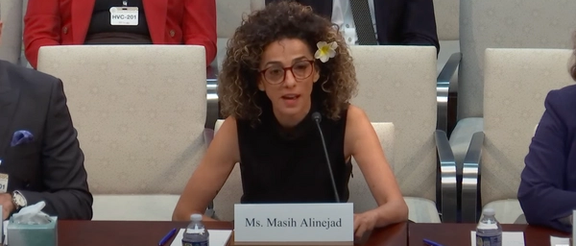
Iranian-American dissident Masih Alinejad says the Biden administration advised her to change her identity and disappear, in light of threats on her life by the Islamic Republic.

Iranian-American dissident Masih Alinejad says the Biden administration advised her to change her identity and disappear, in light of threats on her life by the Islamic Republic.
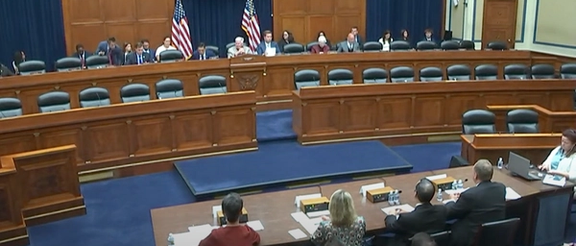
US lawmakers convened Wednesday to examine the Biden administration’s secrecy and “failures” on Iran, calling it a “dangerous” strategy.
The Subcommittee on National Security, the Border, and Foreign Affairs – part of the House Oversight Committee – held the hearing to discuss Washington’s secret dealings with the regime, including Tehran’s nuclear program and negotiations for the release of American hostages in exchange for billions of dollars as well as the circumstances surrounding the dismissal of the Special Envoy on Iran, Robert Malley.
In his opening remarks, Chairman Glenn Grothman (R-Wis) emphasized that the Biden Administration has failed to be transparent with Congress and the American people on talks and actions regarding the Iranian regime. He condemned the White House for a sanctions waiver as part of its prisoner swap on the anniversary of September 11, freeing up $6 billion for “the world’s largest state sponsor of terrorism.”
Decrying the 2015 nuclear deal signed under the Obama administration, Grothman said “the Joint Comprehensive Plan of Action, or JCPOA, was touted by the left as the fix-all to the Iranian nuclear dilemma. In reality, it did little to reign in the Iranian regime while rewarding it with literal pallets of cash.”
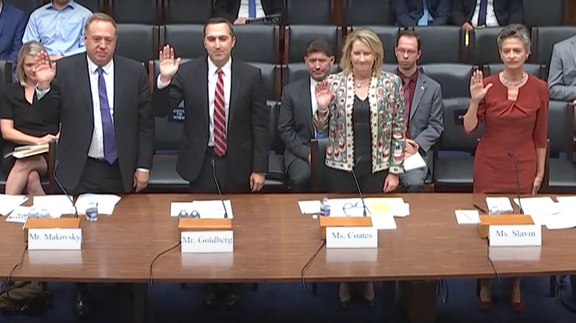
He continued that the Trump administration withdrew the US from the deal “due to Iran’s continued bolstering of its ballistic missile program and its funding of terrorist groups around the globe” and that the current administration has failed to uphold its pledge to return the US to the JCPOA. “Instead, the administration has negotiated in secret and has failed to be transparent” despite the Iran Nuclear Agreement Review Act’s expansive disclosure requirements.
“In March 2023, the International Atomic Energy Agency detected enriched uranium particles at 83.7 percent, prompting great concern as weapons grade uranium is enriched at 90 percent or higher. In addition to its nuclear program, Iran continues work to perfect its ballistic missile program. In May of this year, Iran unveiled its 4th generation liquid fuel ballistic missile, which can carry a 1,500-kilogram warhead around 1,200 miles,” he pointed out.
Grothman highlighted that “Iran’s Revolutionary Guard Corps, or the IRGC, continues to provide arms, training, and financial support to militias and terrorist organizations in Bahrain, Iraq, Lebanon, Palestine, Syria, and Yemen,” mentioning that the IRGC provides the terrorist organization Hezbollah $700 million a year in assistance.
“Since President Biden took office, Iran or its proxies have attacked US forces in the Middle East almost 100 times,” he noted.
On the prisoner swap deal, he said the White House claims the $6 billion could only be used for humanitarian purposes but Iran says it will decide how to spend the money. He stressed the necessity to “ensure that the increase in ransom payments does not incentivize hostile nations like Iran to continue to kidnap American citizens.”
Referring to the suspension of Iran envoy, Robert Malley, which he called “highly unusual”, he said Malley's career has been marked by a “long history of appeasement toward adversaries of the US, and mentioned his repeated meetings with the terrorist organization Hamas under the Obama administration and Iran’s former Foreign Minister Javad Zarif “to undermine President Trump’s maximum pressure campaign against Iran.”
Speaking as one of the expert witnesses at the hearing, Jewish Institute for National Security of America (JINSA) President Michael Makovsky said the Biden administration has not articulated any strategic goal toward Iran, elaborating that in its National Security Strategy, the administration only outlined a series of policies.
He noted that the administration endlessly pursued diplomacy at the exclusion of other tools, an approach which “even enriches and strengthens the regime ... The administration accepts the regime’s existence, works with it and mutes criticism of its awful human rights abuse.”
The US only retaliated to four of Iran’s nearly 100 attacks on US forces in the region, he said, adding that “Iran has even retaliated against US forces for Israeli actions because it fears Israel and not America." So laxly enforced are the sanctions that is has resulted in a triple rise in Iranian oil export revenues in 2023 in comparison to 2020, Makovsky stressed.
Richard Goldberg -- from the Foundation for the Defense of Democracies – described the recent unacknowledged deal with Iran as “a perilous arrangement negotiated in secret, without congressional oversight or review, in breach of statutory requirements.” Secret talks took place against the backdrop of continued attempts by the regime in Tehran to assassinate former US officials and kidnap or kill Iranian Americans on US soil, he added.
He said that it defies logic to believe that the US is paying $6 billion for five people, making it “a historic hostage ransom payment.” Considering other concessions given to Iran such as a waiver of $10 billion of Iran’s oil money blocked in Iraq and a special drawing rights of the IMF for fiat currency of about $7 billion, and $25 billion of oil revenues through a lax enforcement of sanctions that has led to record high export of oil to China, “this is not a $6-billion deal... this could be at least a $50 billion deal.”
“America is paying Iran’s extortion racket, ceding to Tehran nuclear threshold status just to avoid making tough decisions before next year’s presidential election," he stated.

A prisoner swap between the US and Iran is set to happen next week, possibly on September 18, on the eve of the United Nations General Assembly meeting in New York.
The exchange is viewed as a preliminary step towards initiating fresh discussions aimed at reinstating limitations on Iran's nuclear program, reported Bloomberg.
As part of the agreement, the United States is also allowing Iran to access $6 billion in previously frozen funds held in South Korea.
The move by President Joe Biden's administration has drawn criticism, with some arguing that it may encourage further hostage-taking incidents.
In response, National Security Council spokeswoman Adrienne Watson emphasized that the primary objective is the release of five Americans who are “wrongfully” detained, emphasizing that this remains an ongoing and sensitive process. She clarified that no individuals will be transferred into US custody this week.
The Biden administration has refuted Iran's assertions that there will be no restrictions on the $6 billion in oil sales proceeds, asserting that the funds are earmarked exclusively for humanitarian purposes.
In support of the pending prisoner swap involving five Americans and five Iranians, Secretary of State Antony Blinken has informed Congress about a waiver ensuring that German, Irish, Qatari, South Korean, and Swiss banks can facilitate the transfer of the $6 billion from South Korea without violating US sanctions.
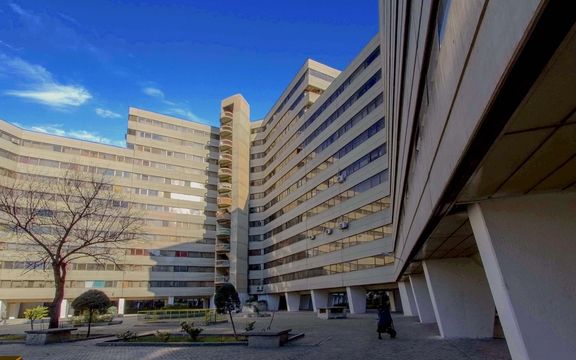
Ekbatan, in western Tehran, known for its resilience during last year's protests, is facing increased security measures to prevent fresh unrest on the anniversary.
Security forces and their plainclothes agents made their initial appearance in Ekbatan last week. They have already established checkpoints within the extensive middle-class apartment complex and have stationed special forces on motorcycles at various locations in and around the compound, including outside a mega mall and a hospital.
In preparation for the upcoming anniversary of Mahsa (Jina) Amini's death in custody of the morality police on September 16, 2022, residents have already begun nighttime chants from their windows. Slogans such as "Down with Khamenei," "Down with the child-killing regime," and "We will persist until the regime collapses, despite poverty, corruption, and high living costs," have echoed through the neighborhood in recent days.
“The sound of many people chanting echoed in the space between the apartment blocks and really scared the security forces. On several occasions they shot pellets and even live bullets indiscriminately at windows to stop people chanting,” Tara, a twenty-five-year-old resident told Iran International in an online chat. “It didn’t work. We returned and gave them more nightmares every night.”
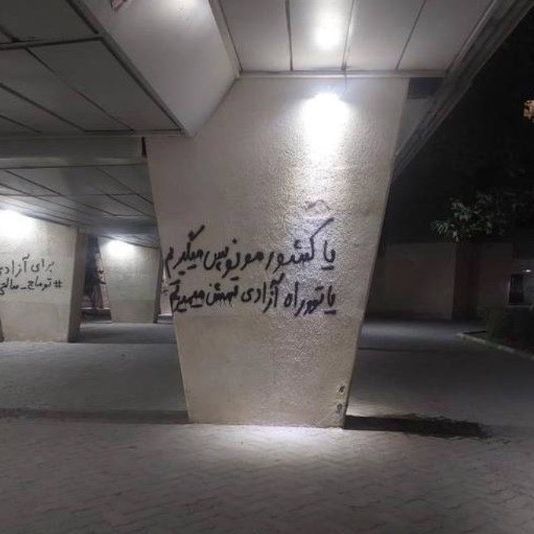
“Ekbatan was more active than other neighborhoods in Tehran because its structure and architecture made it difficult for security forces to control. Additionally, the residents’ community was and is much more tightly knit than in other neighborhoods,” Ashkan, a young man who manages Ekbatan protesters very popular Twitter, Telegram, and Instagram accounts told Iran International. “However, they have been familiarizing themselves with the terrain and become more dangerous,” he added.
Eight young men from Ekbatan who were accused of killing a member of the Basij militia during last year’s protests are still in prison and under great psychological and physical pressure to confess to the allegations that they all deny. “Just recently, they were moved from Rajai-Shahr prison to Ghezel Hesar,” Ashkan said. “They are still awaiting trial and are in very bad shape psychologically.”
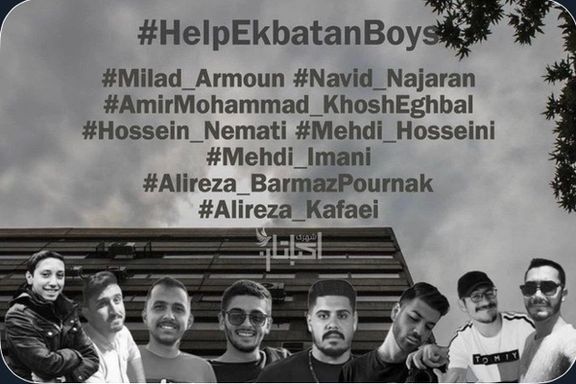
Protesters in Ekbatan often marched under the blocks at night and escaped into the vast green spaces when security forces raided them. They took refuge in one of the many entrances of the blocks, or hid in the apartments of the sympathetic residents who often left their doors open for them.
The five square-kilometer complex, with a population of 45,000 has over 15,500 apartments in 33 blocks built on wide columns. The columns under the blocks are a blank canvas for protesters to spray paint anti-regime graffiti. Ordered by security forces, the management of the blocks ensures that they quickly cover the graffiti with paint, but before long, more graffiti appears on the columns.
Complaining about the many disputes among expatriate groups over the leadership of the movement, Ashkan said protesters could have achieved much more if these disputes had not slowed down the movement. “This is a lengthy process, but anything can suddenly trigger massive protests again like Mahsa’s killing did last year,” he said but declined to comment on his own leadership preferences.
“I was personally very moved last year and became more determined when I saw the video showing Majidreza Rahnavard fighting so bravely for his rights in Mashhad, which is dominated by Basijis and corrupt hardliners. He was really fearless and fought like a hero," Ashkan said.
Rahnavard, 23, was the first of the seven young men executed in public for his involvement in the protests and the alleged stabbing of two Basijis in November 2022. He was hanged in public on December 12.
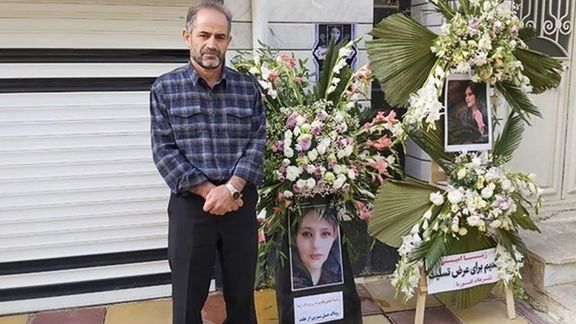
The father of Mahsa Amini continues to endure harassment from state security warning the family against holding events on the one-year anniversary of his daughter's death.
Amjad Amini has had multiple summons to the Intelligence Office in Saqqez over the past two days as regime forces brace for major protests marking the upcoming anniversary on September 16, the day Mahsa died in the hands of brutal morality police, following blows to the head.
In spite of the continued pressure, Mahsa’s father vowed to go ahead with commemorations at Mahsa's grave, which earlier this year was vandalized by what was believed to be regime affiliated thugs. "I have never accepted this, and we will hold the ceremony," he said.
Mahsa’s uncle was recently detained and transferred to an undisclosed location by security forces, with additional threats having been levied against Mahsa's brother, as the family is warned of legal repercussions for their mourning.
Adding to the climate of tension, numerous reports have emerged regarding the deployment of military armed forces to Kurdish cities across Iran. Human rights groups estimate that Saqqez, where Mahsa lived and was laid to rest, has seen the deployment of at least a thousand special forces, who are currently stationed within the city.
Mahsa’s death served as a catalyst for the formation of the Women, Life, Freedom movement and ignited nationwide protests, collectively known as the Iranian Uprising.
During the protests, the regime's armed forces resorted to brutal measures in an attempt to suppress dissent, resulting in the death of at least 570 citizens, including numerous children, as reported by human rights organizations.
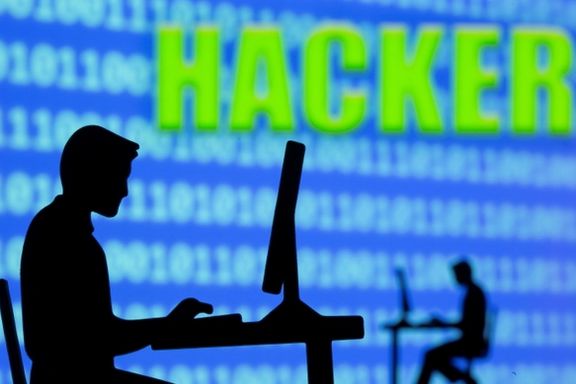
Cybersecurity experts have revealed that hackers affiliated with Iran launched a series of cyberattacks, compromising a total of 34 entities across three countries.
The attacks, between March 2021 and June 2022, were carried out by the state-sponsored hacking group known as Charming Kitten, primarily focused on Israel but also affected Brazilian and Emirati organizations.
According to a report released by cybersecurity firm ESET, the cyber operations were executed using a specific backdoor malware called Sponsor. The hacking group exploited a software vulnerability in Microsoft Exchange servers to gain access to their targets, delivering the malware to the victim's technical infrastructure.
The malware enables hackers to execute their commands on the compromised servers of the targeted companies and steal sensitive information.
Companies in various sectors, including financial services, engineering, manufacturing, technology, law, telecommunications, and more, were among the victims of the regime-backed hackers. Additionally, a healthcare company in Brazil also fell victim to the attacks.
No specific information has been provided about the Emirati organization targeted.
Researchers from ESET have emphasized that the companies were targeted due to their failure to update their software infrastructure.
The incident followed warnings issued in 2021 by several cybersecurity organizations in the United States, the United Kingdom, and Australia about the potential threat of Iranian regime hackers exploiting vulnerabilities in Microsoft Exchange servers.
Appearing in a US House Foreign Affairs Committee hearing on Thursday, Alinejad revealed that she was offered witness protection, typically offered to people “whose lives are in danger as a result of their testimony against drug traffickers, terrorists, organized crime members and other major criminals,” as stated in the US Marshals Service website.
During the session, titled Iran’s Escalating Threats: Assessing US Policy Toward Iran’s Malign Activities, Alinejad also revealed that earlier this year the White House had warned her of at least 31 threats against her life.
“In an email, the administration strongly advised me to go into witness protection,” Alinejad said. “It means that I have to change my identity… to disappear. This is what exactly the Islamic Republic of Iran wants.”
The State Department is yet to respond to Iran International's request to provide comments on the issue.
The Biden administration has been heavily criticized this week for agreeing to release $6 billion frozen Iranian funds as part of a prisoner swap deal.
The criticism was echoed by some in the House Foreign Affairs Committee hearing, including Congressmen Rich McCormick (R-GA), Mike Lawler (R-NY) and House Foreign Affairs Committee Chair Michael McCaul (R-TX).
Masih Alinejad did also speak against the deal. She censured the Biden administration for showing “weakness” and trying “not to antagonize the ayatollahs”, claiming that the released funds will end up in the IRGC coffers, helping them in their attack on American interests as well as their suppression of the Iranian people.
“The money goes to the ‘morality police’ to kill more Mahsa Aminis,” she said, referring to the 22-year-old Kurdish Iranian woman whose death ignited the Women, Life, Freedom protests.
The rights activists added, “The money goes to the Revolutionary Guards to kill more children in Ukraine. The money goes to the relatives of the ayatollahs to actually promote Sharia laws to oppress more women in Iran.
“We all know that,” she concluded.






